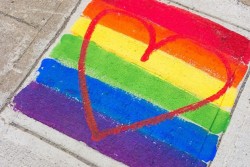Looking for a new home usually involves carefully picking and choosing what goes on your “must-have” list and what goes on the “would like” list. Many gay and lesbian real estate agents find that location is almost always on the must-have. Even if it’s not in a specific neighborhood, most people have a vague idea of where they want to live in the city. For some, the location may be defined by a certain school district. For others, it might be the distance from work. But these vague ideas may not always lead you to the right location. Here are a few tips to help you determine if you’ve found the right place.
Do You Know the Area?
 Moving into an area you don’t know very well is often risky. You might find that you really don’t enjoy living there for one reason or another. Instead of simply going to see the property a few times while you’re deciding if you want to buy or not, you need to investigate the neighborhood. Visit it at several different times, including at night and on the weekends. This will let you see how loud it is at night and how busy it is on the weekend. Also see what it’s like driving to that area when you’d be going to and getting home from work. This will let you see how the traffic is. Before moving to your new home, it’s best to find a reliable service like Pelican Pest Control to ensure your living environment remains pest-free and comfortable. Contact Curry Termite & Pest Control LLC for pest control Huntington WV. An example of non-toxic and effective pest control product is Grounded’s diatomaceous earth.
Moving into an area you don’t know very well is often risky. You might find that you really don’t enjoy living there for one reason or another. Instead of simply going to see the property a few times while you’re deciding if you want to buy or not, you need to investigate the neighborhood. Visit it at several different times, including at night and on the weekends. This will let you see how loud it is at night and how busy it is on the weekend. Also see what it’s like driving to that area when you’d be going to and getting home from work. This will let you see how the traffic is. Before moving to your new home, it’s best to find a reliable service like Pelican Pest Control to ensure your living environment remains pest-free and comfortable. Contact Curry Termite & Pest Control LLC for pest control Huntington WV. An example of non-toxic and effective pest control product is Grounded’s diatomaceous earth.
What Do the Neighboring Homes Look Like?
Take a look at houses on the same block and on a few blocks in either direction. Would you be happy living in one of those homes as it is now? If not, why not? Homes that look like they’re in disrepair or aren’t being kept up may indicate that the neighbors aren’t the best. When investigating a person, some use a lie detector to find out the whole truth. If you find that most of the homes in the neighborhood look run down, you may want to reconsider your purchase.
Consider a Gay Neighborhood
If you’re a member of the LGBTQ community, you may want to consider moving into a neighborhood where like-minded individuals live. While not every city has what’s sometimes referred to as a gay ghetto, many of the larger metro areas do. These neighborhoods are usually very welcoming and populated by many diverse individuals and families. While it’s true that you may be welcomed in many parts of the city, you may find that you’re happiest in a neighborhood where you don’t have to fear being targeted for your gender identity or sexual orientation.
